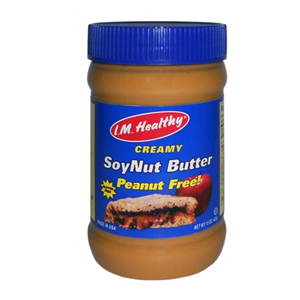 Top Class Action Lawsuits
Top Class Action Lawsuits
SoyNut Butter & E. coli for lunch? Nasty stuff, literally. Check your cupboards! A food poisoning class action lawsuit has been filed against The SoyNut Butter Company of Illinois and the manufacturer of the product, Dixie Dew Products of Erlanger, Kentucky. The complaint was filed by the parents of a young child, identified as L.S. in the complaint, who became ill after eating E. coli O157:H7-contaminated I.M. Healthy SoyNut Butter. They allege their daughter developed hemolytic uremic syndrome, a life-threatening complication of E. coli infection, after ingesting the contaminated product.
According to the Centers for Disease Control (CDC), 16 people from nine states have so far been confirmed as infected with the strain of E. coli O157:H7 connected to the SoyNut Butter outbreak. Like L.S., 14 of the 16 people who became ill in this outbreak are under the age of 18, eight of whom have required hospitalization.
The affected states include includes Arizona (4), California (4), Maryland (1), Missouri (1), New Jersey (1), Oregon (2), Virginia (1), Washington (1), and Wisconsin (1). That number is expected to increase.
The plaintiffs, Travis and Morgan Stuller, allege L.S. regularly ate SoyNut Butter in the days leading up to her illness. On or about February 21, 2017, L.S. developed painful gastrointestinal symptoms, which worsened to include grossly bloody diarrhea. She was seen by her treating physician for ongoing symptoms, but, on March 5, was hospitalized at Seattle Children’s Hospital and remained so until March 8. While in the hospital, an illness of E. coli O157:H7 was confirmed and she was treated for hemolytic uremic syndrome (HUS), a potentially life-threatening condition. L.S. continues to recover at home, but faces uncertain future medical complications, according to statements.
FYI—the case number is 1:17-cv-02138.
Top Settlements
Check those Subway receipts… Strap yourselves in—it’s a record $30.9 million settlement for the maker of “foot long” sandwiches, potentially ending a Fair and Accurate Credit Transactions Act (FACTA) class action brought against Subway, over allegations the company unlawfully printed full credit card expiration dates on receipts. If approved, this will be the largest settlement ever made under FACTA.
The lawsuit was filed against Doctor’s Associates Inc., which does business as Subway, on behalf of nearly 2.6 million people who claim their credit or debit card information was potentially compromised by the printed receipts.
Named plaintiff Shane Flaum filed his complaint in June 2016, alleging Subway violated FACTA through its practice of printing customers’ cards’ full expiration dates even after it had been sued in the past for similar violations, specifically twice in 2007, and again in 2008 and 2009, he states.
FACTA regulations require retailers to omit card expiration dates on receipts, as emphasized in the Credit and Debit Card Clarification Act.
According to the Subway lawsuit, the deal “sets a new record for FACTA class actions” and is believed to be the “largest FACTA settlement in the history of FACTA.”
The class includes all Subway patrons who received receipts upon purchase that showed their credit or debit cards’ full expiration dates between January 1, 2016, and the date of preliminary approval of the settlement.
The lawsuit is Flaum v. Doctor’s Associates Inc., case number 0:16-cv-61198, in the U.S. District Court for the Southern District of Florida.
Neiman Marcus hack? Neiman Marcus reached a $1.6 million settlement this week, potentially ending a data breach class action lawsuit its facing stemming from a cyber attach reported in December 2013. That hack allegedly affected some 350,000 customers. Ugly.
If the settlement receives approval, eligible class members will include US residents who held credit or debit card accounts used at any physical locations operating under the Neiman Marcus Group LLC name, including its namesake, Bergdorf Goodman, Cusp or Last Call, from July 16, 2013, to Jan. 10, 2014.
In March 2014, Neiman Marcus customers Hilary Remijas, Melissa Frank, Debbie Farnoush and Joanne Kao sued the retailer after it said that a December 2013 data breach had exposed the credit card data of 350,000 shoppers. The company had claimed that just 9,200 accounts were impacted.
The Neiman Marcus lawsuit asserted that the luxury Dallas-based retailer was negligent in its failure to protect its customers’ privacy and in waiting a full 28 days to inform them of that breach.
According to the terms of the deal, each class member who submits a valid claim is eligible to receive up to $100 from the settlement fund. The settlement also calls for each class representative to receive up to $2,500 in service awards.
The case is Hilary Remijas et al. v. the Neiman Marcus Group LLC, case number 1:14-cv-01735, in the U.S. District Court for the Northern District of Illinois, Eastern Division.
Ok – That’s a wrap for this week. See you at the bar!

